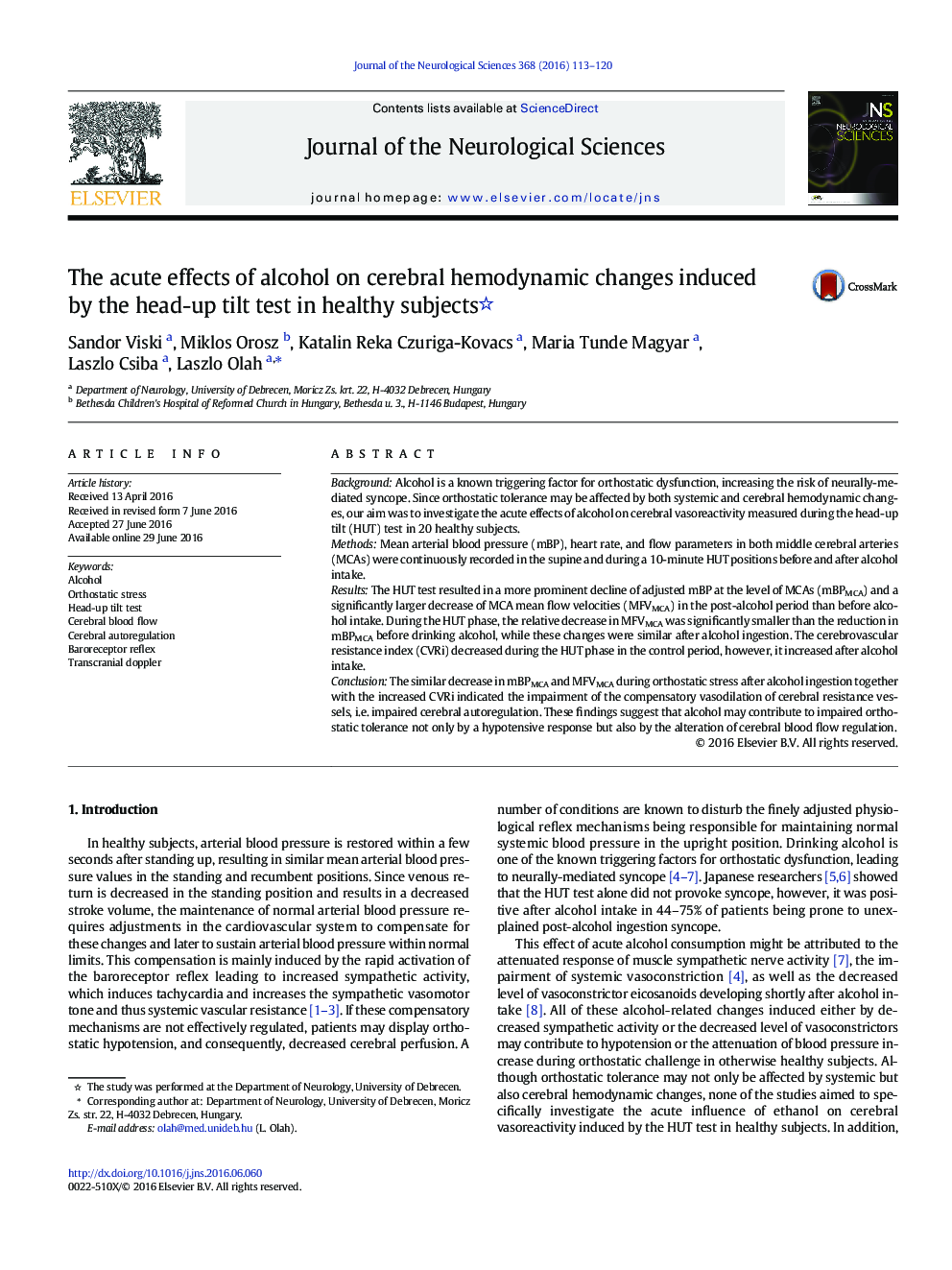| کد مقاله | کد نشریه | سال انتشار | مقاله انگلیسی | نسخه تمام متن |
|---|---|---|---|---|
| 1912963 | 1535094 | 2016 | 8 صفحه PDF | دانلود رایگان |
• HUT test induced larger drop of blood pressure at the MCA level (mBPMCA) after alcohol.
• HUT test caused larger decrease of MCA flow velocity (MFVMCA) after than before alcohol.
• The relative decrease in MFVMCA and mBPMCA was similar in the HUT phase after alcohol.
• The cerebrovascular resistance did not decrease in the HUT phase after alcohol intake.
• Alcohol may contribute to orthostatic dysfunction and stroke by impaired CBF regulation.
BackgroundAlcohol is a known triggering factor for orthostatic dysfunction, increasing the risk of neurally-mediated syncope. Since orthostatic tolerance may be affected by both systemic and cerebral hemodynamic changes, our aim was to investigate the acute effects of alcohol on cerebral vasoreactivity measured during the head-up tilt (HUT) test in 20 healthy subjects.MethodsMean arterial blood pressure (mBP), heart rate, and flow parameters in both middle cerebral arteries (MCAs) were continuously recorded in the supine and during a 10-minute HUT positions before and after alcohol intake.ResultsThe HUT test resulted in a more prominent decline of adjusted mBP at the level of MCAs (mBPMCA) and a significantly larger decrease of MCA mean flow velocities (MFVMCA) in the post-alcohol period than before alcohol intake. During the HUT phase, the relative decrease in MFVMCA was significantly smaller than the reduction in mBPMCA before drinking alcohol, while these changes were similar after alcohol ingestion. The cerebrovascular resistance index (CVRi) decreased during the HUT phase in the control period, however, it increased after alcohol intake.ConclusionThe similar decrease in mBPMCA and MFVMCA during orthostatic stress after alcohol ingestion together with the increased CVRi indicated the impairment of the compensatory vasodilation of cerebral resistance vessels, i.e. impaired cerebral autoregulation. These findings suggest that alcohol may contribute to impaired orthostatic tolerance not only by a hypotensive response but also by the alteration of cerebral blood flow regulation.
Journal: Journal of the Neurological Sciences - Volume 368, 15 September 2016, Pages 113–120
